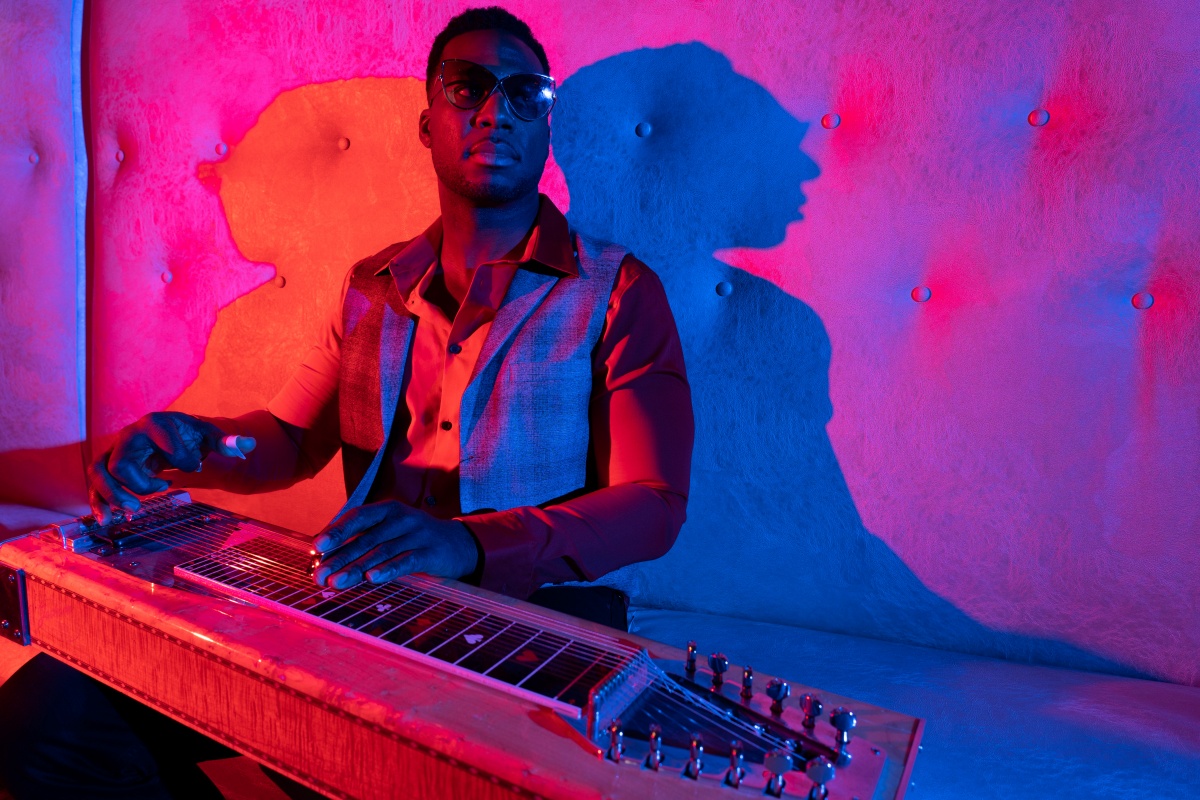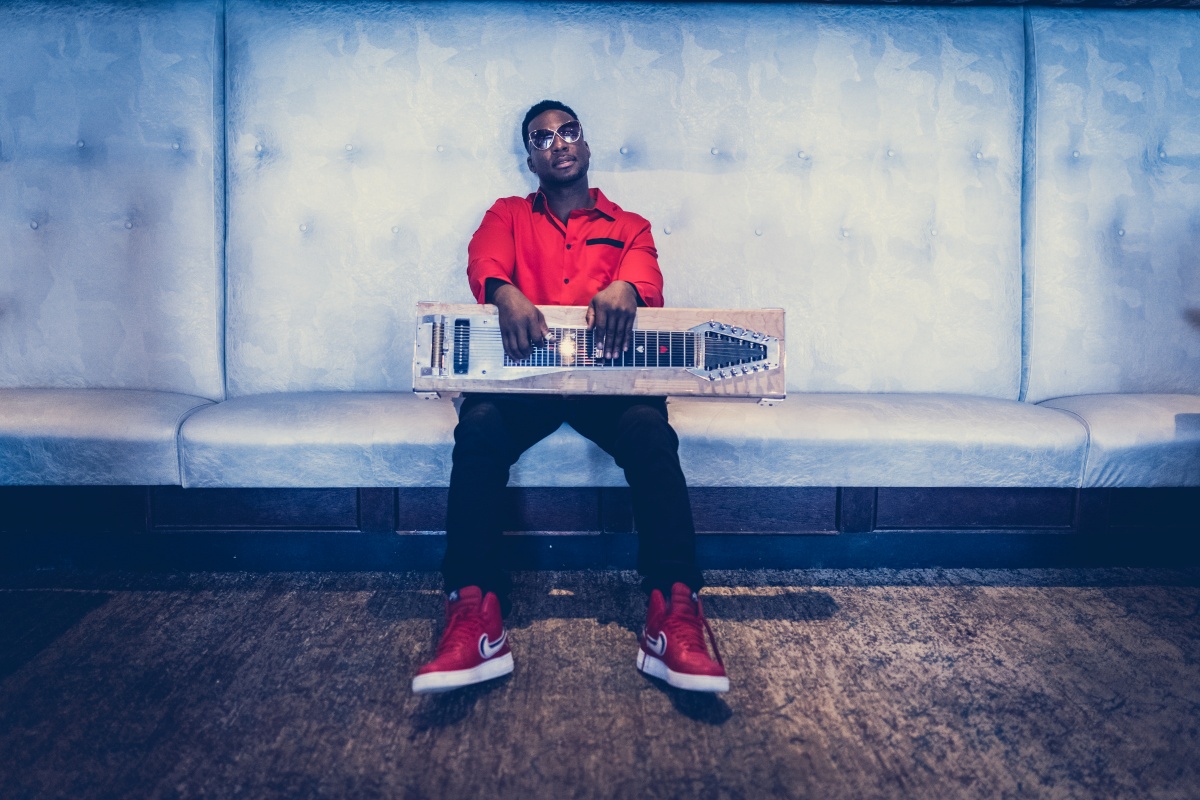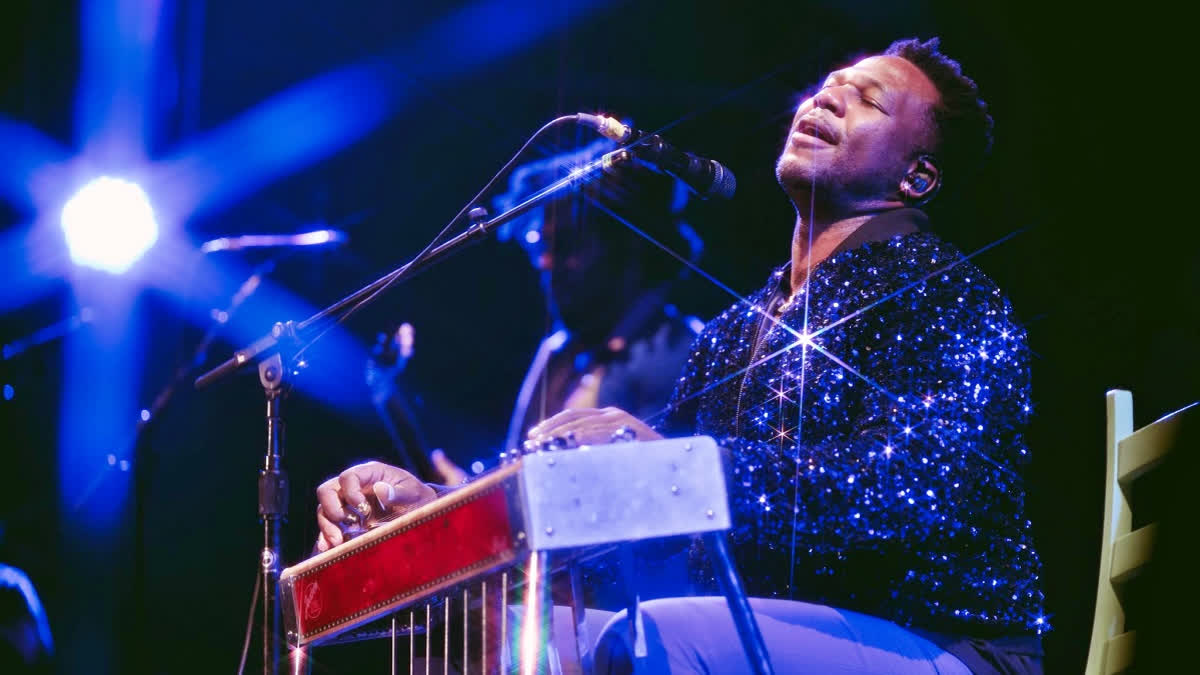If there’s one thing that makes live music feel like the beating heart of our shared humanity, it’s the kind of raw, soul-stirring performance you only get from a true bluesman. Enter Robert Randolph, the pedal steel guitar virtuoso whose music is a mashup of gospel, funk, and pure, unadulterated blues. As the 2025 Mahindra Blues Festival commences at Mehboob Studios in Mumbai, Randolph stands ready to deliver an electrifying performance on Sunday, February 9 inside the Polka Dot Parlour.
Global Blues Star
A six-time Grammy nominee, Randolph has built a career that spans high-profile collaborations, from being a featured artist on Beyoncé’s Cowboy Carter (which won Album of the Year at the 2025 Grammys) to lending his soulful steel guitar on tracks like 16 Carriages. He’s become a household name not only through his electrifying performances on the NFL Thursday Night Football broadcasts on Amazon Prime, where his music has become the theme for the 2024-25 season, but also by pushing the envelope with his upcoming album Preacher Kids, produced by Shooter Jennings and set for release via Sun Records in mid-2025.
For Randolph, playing at the Mahindra Blues Festival (MBF) in India is steeped in history and passion. “Playing in India is incredibly meaningful to me,” he confides over a Zoom interview to ETV Bharat. “For years, we weren't exposed to the rich tradition of Indian music, and as I’ve studied more about it, I've come to realize just how deep and ancient this tradition is... stretching back hundreds, if not thousands, of years. The soulful sounds of Indian guitar, slide playing, and the unique melodies have inspired me immensely.”
To say he's excited about playing in India would be an understatement. Randolph sees India as a unique confluence of heritage and raw energy. He adds, “To be able to come to India and share my style of playing with the people here feels both refreshing and inspiring. The connection with the audience in India is special because of the history and the energy they bring to the music.”
Pedal Steel Guitar Specialist
Randolph’s signature pedal steel guitar is akin to his voice. “My pedal steel guitar style is deeply rooted in gospel and sacred steel traditions,” he says. “When I play, I draw on the emotional and spiritual energy that gospel music embodies—there’s a raw, soul-stirring quality that connects directly with the listener. I channel this energy into my blues performances by focusing on the same expressive dynamics, using the pedal steel to weave between joyful highs and deep, reflective lows. The unique voice of the pedal steel allows me to translate those sacred, emotional moments into the blues, blending that gospel influence with the improvisational freedom of the genre. It's all about conveying feeling and spirit, whether it's the intensity of joy or the depth of sorrow.”
Influential Artiste
His influence extends to the silver screen as well, having performed at the 94th Oscars alongside Reba McIntyre on the song Somehow You Do and even co-writing and playing on the Elvis movie with producer Dave Cobb.

But what truly sets Randolph apart isn’t just technical prowess with the guitar, it’s his ability to let the music flow naturally. “It’s all about staying true to myself and letting the music flow naturally,” he says. “For me, it's less about trying to balance genres and more about letting the emotions and the rhythm guide the way. Gospel, funk, and blues... they all speak to different parts of the soul. When you’re in that space, it’s like the music takes over, and you just go with it. It’s like finding that groove that hits deep, where the melodies and rhythms come together and just make people feel something real. When I perform, it’s all about that connection—when people get lost in the beat, that’s when the magic happens. It’s less about the lines between genres and more about the energy they create together.”
Blues Music Is Constantly Evolving
For Randolph, the blues is an evolving tradition. “It means a lot to me to be part of this tradition and help carry it forward,” he reflects. “The blues has such a rich history, but what excites me most is how it continues to evolve. For years, many of us weren’t exposed to incredible musical traditions from other parts of the world (like India’s) which go back hundreds, if not thousands, of years. As I’ve studied Indian music, especially its slide guitar techniques and melodies, I’ve been struck by the depth and soulfulness that resonate so closely with the blues. Bringing my own style into that space has been both refreshing and inspiring. To keep the blues alive for younger audiences, I believe in honouring its roots while embracing new influences. Whether through collaborations, modern interpretations, or just staying true to the raw emotion that defines the blues, I want to help it remain relevant and powerful. Music is universal, and every time I get to share it with new audiences—especially in a place as musically rich as India—it reaffirms why I do what I do.”

Live shows, for Randolph, are moments of unexpected magic. “There have been a few times when we were jamming on a song that was familiar to someone in the audience... maybe a cover song or a great historical piece. And we would find that somewhere in the audience, there was a person who knew how to play guitar. If we had an extra guitar on stage, that person would jump up and start jamming with us.”
Post-pandemic Renaissance
And then, there’s the post-pandemic renaissance. “You know, it's sort of been the fact that we were all home, unable to have that interaction (us playing together) because we all love recording music, but we also want to play it live and share those moments with an audience. The pandemic took that away from us. Once the world opened up, everyone was eager to reconnect because live music is like a lifeline, for us musicians and for the fans. We’ve come to realize that it's also about the emotions, happiness, and mental well-being it brings to everyone. Not being able to share that for a year-and-a-half or two really made us appreciate these moments even more.”
Read more:



